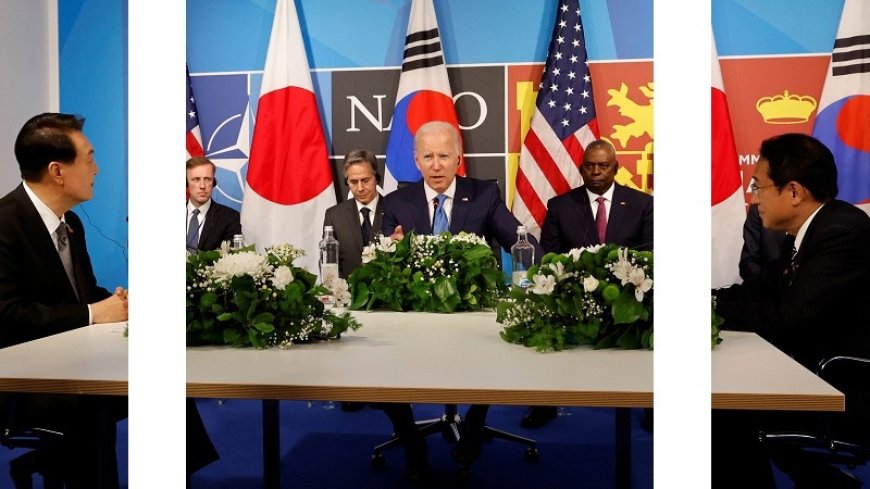North Korea Condemns US-Led Alliance in Asia, Labeling It 'Asian NATO'
North Korea’s Foreign Ministry has vehemently criticized recent efforts by the United States, Japan, and South Korea to establish a military alliance in Asia, calling it a severe threat to regional stability.

North Korea’s Foreign Ministry has vehemently criticized recent efforts by the United States, Japan, and South Korea to establish a military alliance in Asia, calling it a severe threat to regional stability. In a strongly worded statement, the ministry condemned the tripartite military exercises, dubbed "Edge of Freedom," conducted on Jeju Island in South Korea. The exercises, which involved extensive coordination and training among US, South Korean, and Japanese forces, were seen by North Korea as a provocative demonstration of military might.
The North Korean Foreign Ministry likened the growing cooperation between the US, Japan, and South Korea to a full-fledged Asian version of NATO. "The actions of the US and its allies represent a serious threat to the stability of the region," the statement read. "Pyongyang will not overlook the formation of a military bloc led by the US and its allies and will respond decisively to protect regional peace."
This sentiment echoes earlier remarks from the Deputy Chief of the Joint Staff in China’s Central Military Commission, who labeled the United States as the primary challenge to regional security and stability. He asserted that "Washington seeks to create a NATO-like alliance in the Asia-Pacific region to maintain its hegemony."
The trilateral military cooperation comes amid rising tensions on the Korean Peninsula and broader security concerns in the Asia-Pacific region. The US, Japan, and South Korea have cited the increasing missile and nuclear threats from North Korea as a justification for their enhanced military collaboration. These countries argue that their joint exercises are necessary to ensure readiness and to deter potential aggression from Pyongyang.
However, North Korea views these moves as aggressive and destabilizing. The foreign ministry's statement emphasized that such actions could lead to an arms race in the region, undermining efforts to achieve lasting peace and security.
In addition to North Korea's condemnation, China has also expressed apprehension regarding the burgeoning alliance. Chinese officials argue that the US is using the threat of North Korea as a pretext to expand its military presence and influence in the region, thereby escalating tensions with Beijing.
The evolving dynamics in the Asia-Pacific highlight the complex interplay of regional security concerns, historical grievances, and great power rivalry. As the US, Japan, and South Korea continue to strengthen their military ties, the responses from North Korea and China suggest a potentially volatile future for the region.
Diplomatic efforts to address these security challenges are more critical than ever. The international community will be closely watching how these developments unfold and their implications for peace and stability in the Asia-Pacific.













































